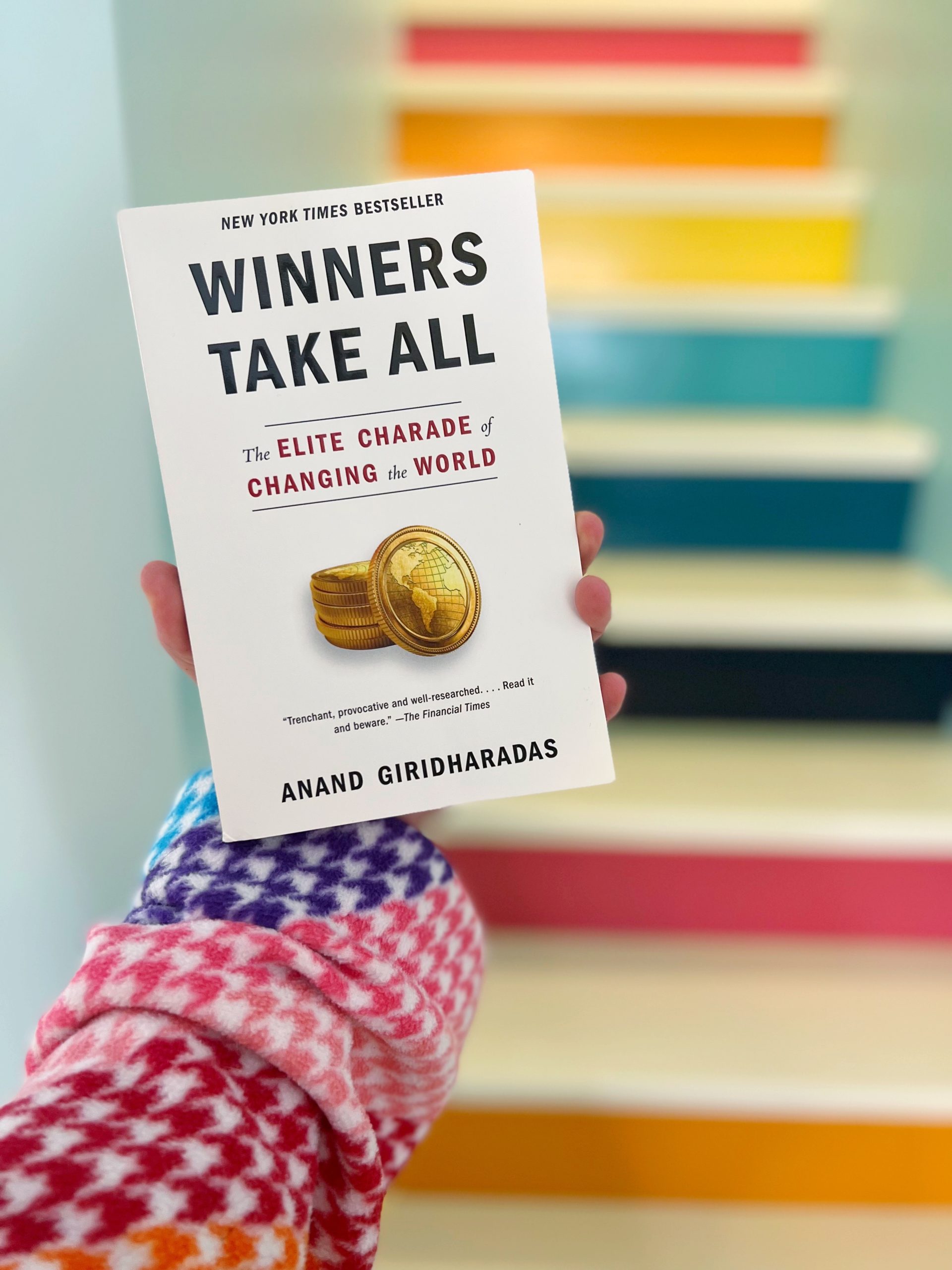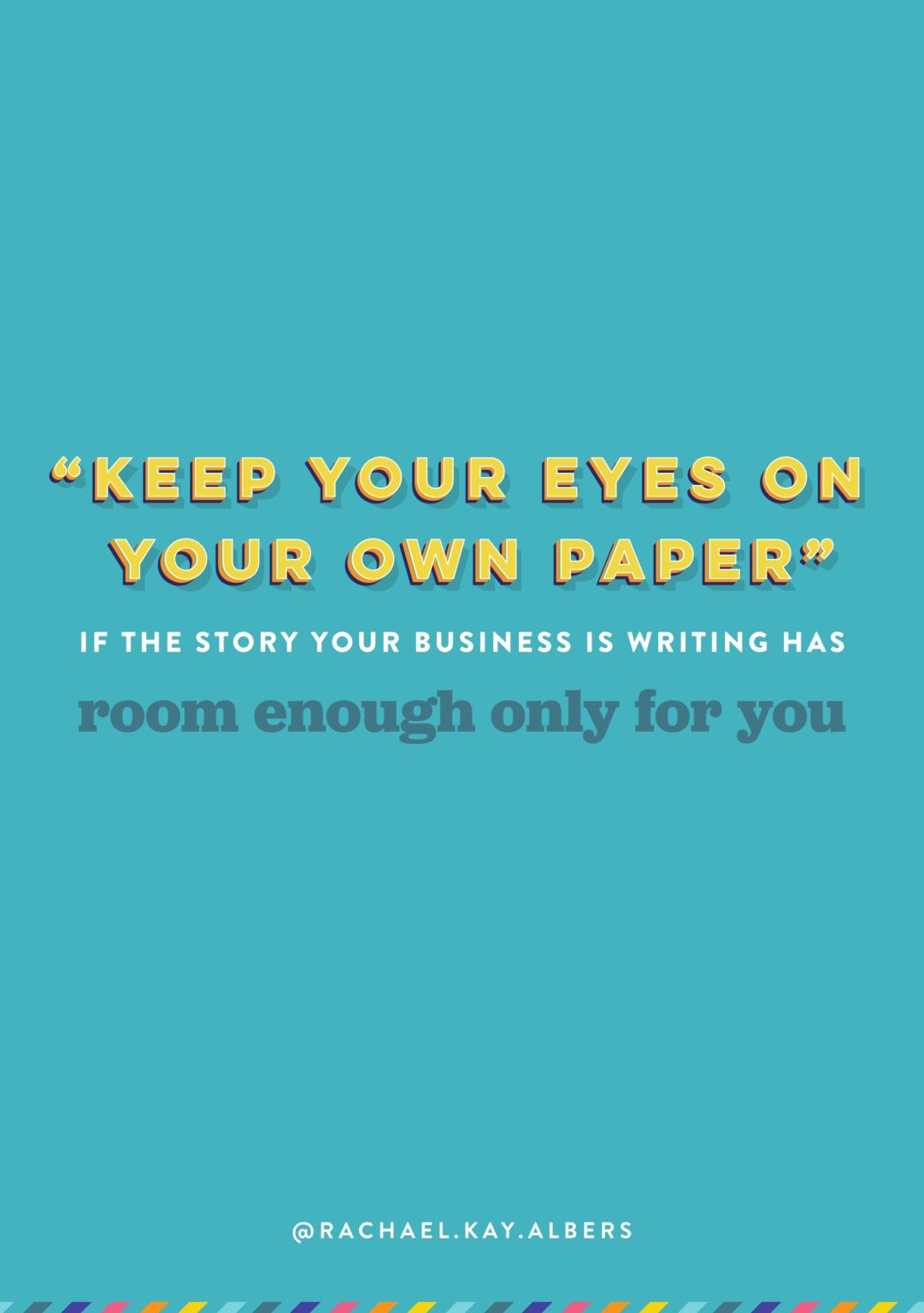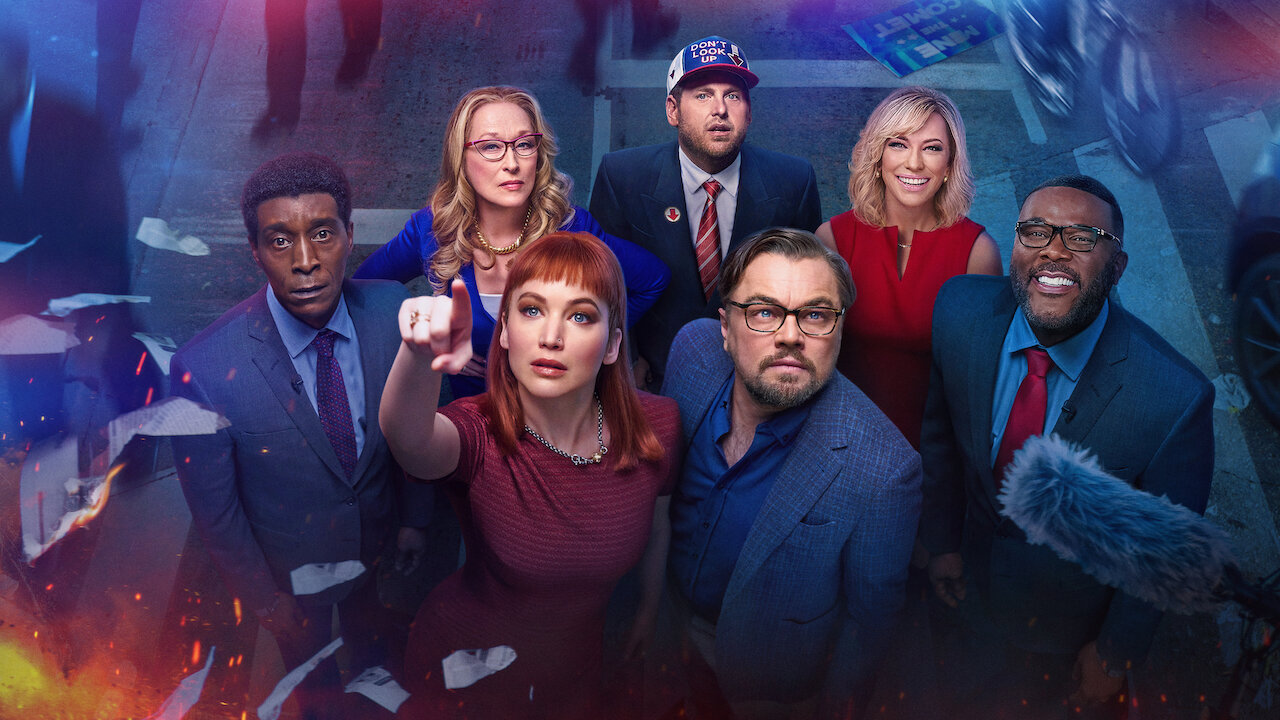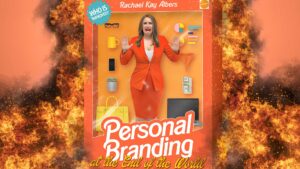Listen to the audio version. This essay is available as a podcast!
“Keep your eyes on your own paper” is excellent business advice.
If you’re in the business of usual, that is.
I know what you’re thinking:
“Paradoxes before I’ve had my coffee, RKA?! Why can’t you ever just post something feel-good and Godinesque that I can grab, retweet, and then get on with my day?”
Okay, here you go:
Keep your eyes on your own paper if the story your business is writing has a happy ending with room enough only for you.
— Rachael Kay Albers (@rkaink) February 8, 2022
That’s it.
That’s the tweet.
Grab it and go.
The rest of this essay will be ready to snack on once you’ve had your morning macchiato.
Have you noticed your appetite for big ideas shrink in recent years?
If it’s not bite-sized — baked down and itty bitty enough to retweet — forget about it.
This is a feature of the Ideas Economy, which churns out experts faster than Starbucks makes mochas and matchas. (And squeezes out unions! Oh my!)
The mark of a marketable thought leader is their ability to serve up solutions in to-go cups.

There’s simply no time to simmer on the systemic roots of a problem.
Best case scenario, you’ve got 18 minutes — the maximum length of a TED talk — to state your case. Otherwise, you’ve got 280 characters like the rest of us twittering plebes.
Today’s idea consumer wants happy endings roomy enough for all of us — those on top and those who keep the bottom from falling out.
Anand Giridharadas describes this phenomenon in his book Winners Take All: The Elite Charade of Changing the World. (Yes, this is the book I won’t shut up about on Instagram.)
The thought leader, as Giridharadas explains, deals in hope and she has some for everyone.
Her win-win solutions are designed to empower people struggling within the system without threatening the powerful who rule that system.
If we are frogs in the boiling water of capitalism, a thought leader’s role isn’t to reveal who turned on the gas or where the stove gets its power, but to design ways for us to more comfortably endure the heat.
She makes rafts, not ladders.
Elites who hold money and power love thought leaders and so does the marketplace. Unlike the critics and public intellectuals historically concerned with “plumbing the depths of a problem,” the thought leader’s to-go cup only has space for hope, however artificial.
When you bake down an idea to become bite-sized, you’re left with easy-to-swallow strategies, not for solving problems, but living with them.
“Watered-down theories of change that are personal, individual, depoliticized, respectful of the status quo and the system, and not in the least bit disruptive,” as Giridharadas describes.
“The more genuine criticism is left out and the more sunny, actionable, takeaway-prone ideas are elevated, the shallower the very idea of change becomes. When a thought leader strips politics and perpetrators from a problem, she often gains access to a bigger platform to influence change-makers — but she also adds to the vast pile of stories…that tell us that change is easy, is a win-win, and doesn’t require sacrifice.”

This explains why, the more questions I ask in my writing (and ranting) the more answers I get back that look like this:
- “If capitalism can’t solve it, then what will, RKA???”
- “You say well-meaning millionaires won’t save us, but I don’t see you offering a better way.”
- “You recommended this book about what’s going wrong, but do you have a book for what to do instead?”
I can feel the desperation, and sometimes disdain, coming from these messages.
Am I seriously out here “plumbing the depths of a problem” IN THIS ECONOMY?!?
Does Starbucks serve 24 ounce cups of audacity now?!?
How dare I explore hard questions if I don’t have easy answers?
I ended my essay last week telling you, “It took me four thousand four hundred-ish long days and dogged nights of becoming an expert for me to wake up and realize I know absolutely nothing.”
No, I don’t have the answers. And guess what? No one does. The sooner we accept this, the sooner we can get down to the real business of problem solving. Together.
Bringing this back to my tweetable:
“Keeping your eyes on your own paper” is a strategy for living in a system that needs us to believe we are all just one TED talk, one tweet, one to-go cup of hope away from the next win-win solution.
A system that needs us to believe that individual entrepreneurs — all with eyes on their own papers — will rescue us from the rolling boil of global collapse.
That we should be grateful for our rafts.
Ladders, after all, will destroy the lifesaver economy!

Here’s another tweetable for you:
Saving the world is no one’s business.
But it’s all of our problem.
And, no, I don’t have the solution.
But we do.
— Rachael Kay Albers (@rkaink) February 8, 2022
Prevailing business wisdom like “keep your eyes on your own paper” exists to ensure that the prevailing will prevail.
If change is what we seek — if we are looking to build ladders, not rafts — we must be willing to put our papers together, like puzzle pieces, so we can see the bigger picture.
Impostor Syndrome and Comparisonitis — the maladies that “eyes on your own paper” logic promises to treat — are side effects of thinking it is our job, personally, to invent the change. (And then trademark that change. Patent its win-win formula. And, finally, tell the whole world about it in 18 minutes or less.)
As long as we treat entrepreneurship as a race to the next great raft design, everyone around us is our opponent, not our collaborator.
So we keep our eyes fixed firmly on our own papers, sipping on endless to-go cups, holding out hope that soon our solitary scribbles will turn into golden tickets.
And the prevailing prevail.
And the temperatures rise.
And the answers evaporate before we even notice because we’re too busy looking down.
What does this mean for business owners like you and me, struggling to survive in the steamy, stormy seas of capitalism, knowing that even the best rafts melt?
At risk of sounding like a Netflix special:
Just look up.
This is ultimately why I believe branding, marketing, and business need more activists.
Branding and activism have one big thing in common — they are a dialogue, not a monologue.
Your brand does not exist in your mind alone, but in the memories, experiences, and expectations of your audience.
Similarly, the change we seek will not come from a single inventor, who just so happens to be sponsored by the status quo.
No, I do not believe that your business, my business, any business in and of itself, will save the world.
But I do believe if we put our heads together, we can craft more than a raft.
And maybe, just maybe, once we climb above the condensation of capitalism, we can feast our eyes on a new world. One that simply can’t be described in 280 characters.
What do you think? Let’s compare notes…
p.s. Sick of business newsletters that have all The Answers™? Well, I've got nothing but questions. For more marketing muckraking and brand strategy gone wild, sign up for my emails here:
If you liked this, read on:
In many ways, it seems easier to become a “personal brand” version of yourself than to be yourself. Brands are built on simplicity. A “good”…
Read More...Rebrand TOO MUCH to SO MUCH. Instead of saying, “She’s TOO MUCH,” say, “She’s SO MUCH.” You’re welcome. Lessons on burning it all down…
Read More...In 2021, I started a business / art experiment called FREE SCHOOL. I didn’t know at the time that this school would teach me to free myself. What happens after you burn it all down?
Read More...


